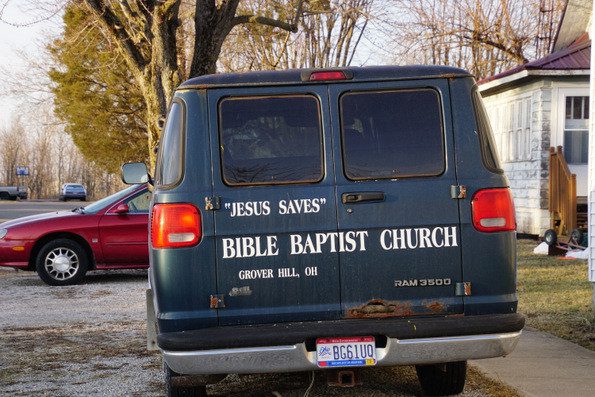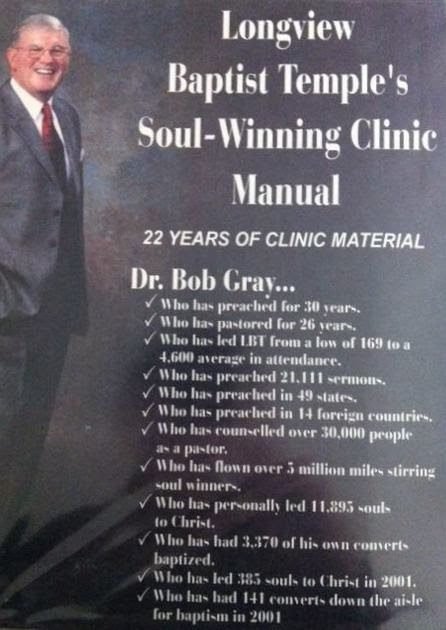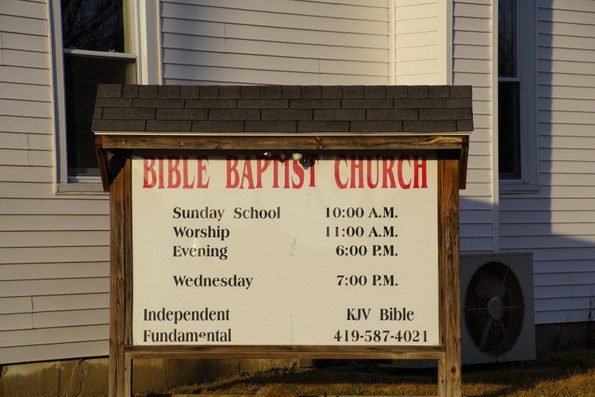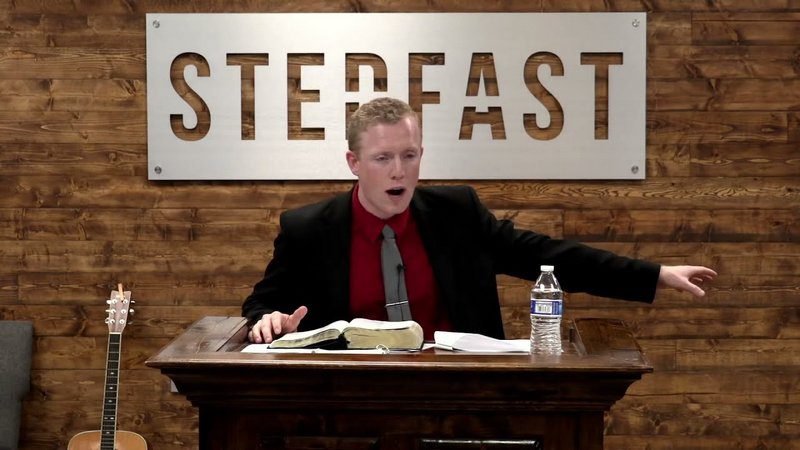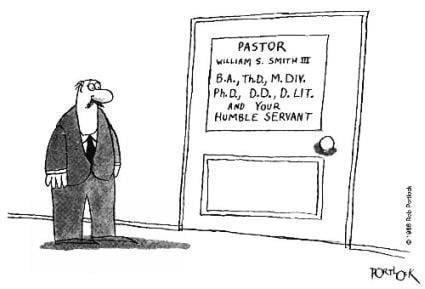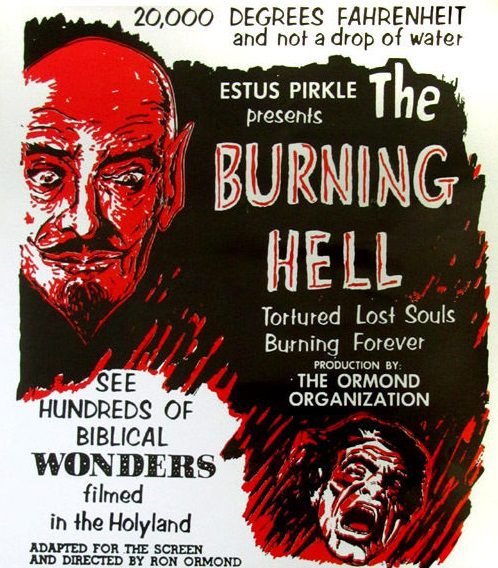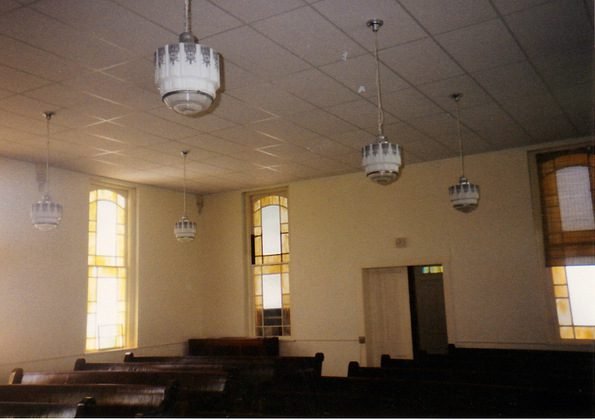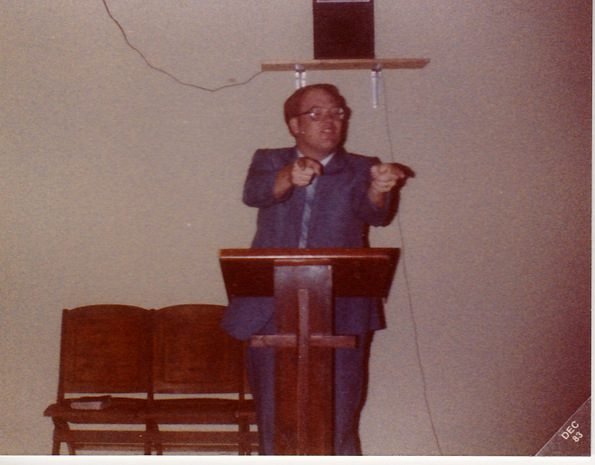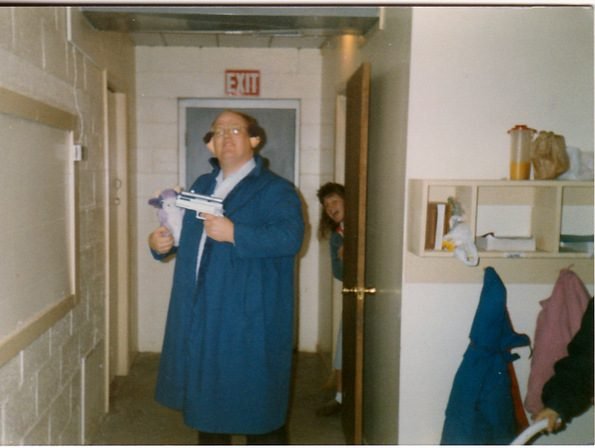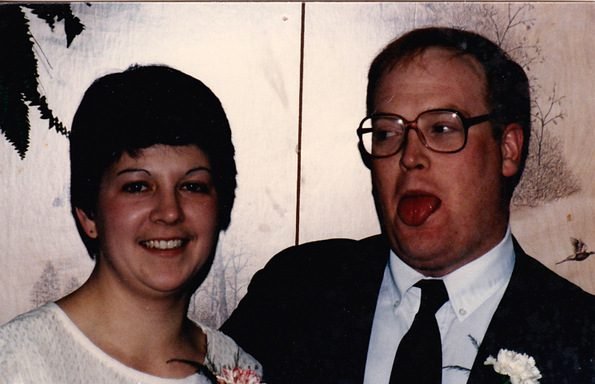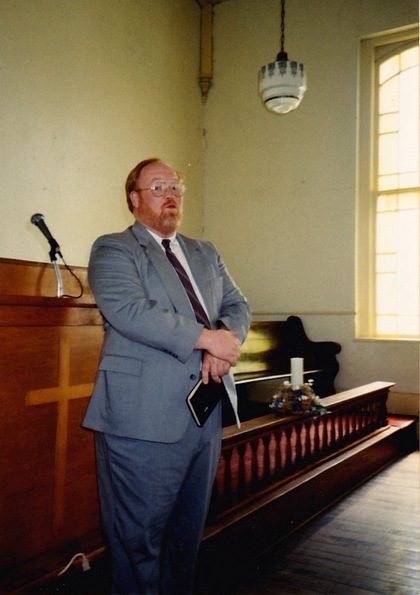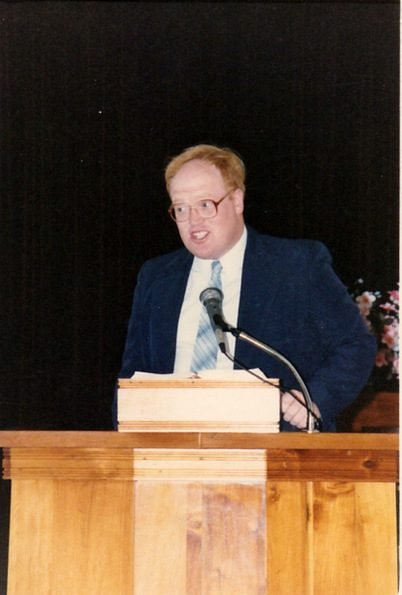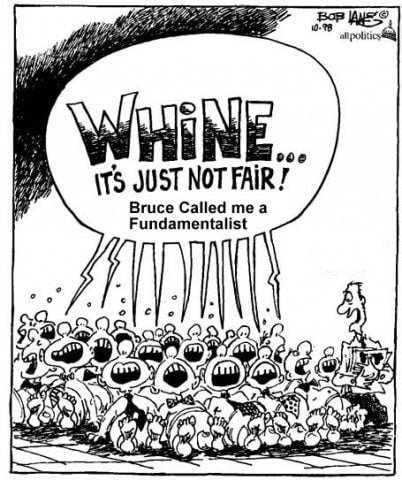
Note: I use the words Fundamentalist and Fundamentalism in two different ways in the posts, one is capitalized, and the other isn’t. If I am using these words in a general sense, I don’t capitalize them. However, if I am using the words as nouns to describe particular sects, churches, or clerics I capitalize the words. The same goes for the word Evangelical. I have had newspaper editors “correct” my use of the word, making it lower case instead of upper case. Evangelical is in the same category as words such as Catholic, Baptist, and Methodist. Recently, I had a newspaper editor “correct” my use of the phrase Independent Fundamentalist Baptist (IFB), making the words lower case. This, of course, was an incorrect correction, revealing the editor’s lack of knowledge about Evangelicalism and the IFB church movement.
Complete Christianity: The Catholic Blog of Shane Schaetzel recently ran an article titled How to Evangelize the Evangelicals. Schaetzel maintains that there is a difference between an Evangelical and a Fundamentalist:
Evangelicals and Fundamentalists may often look the same at first glance, but they are two very different and distinct people. An Evangelical is not a Fundamentalist, nor is a Fundamentalist an Evangelical.
….
Fundamental Protestantism, otherwise known as “Fundamentalism,” is a relatively new phenomenon, born in the early twentieth century (early 1900s), and is a knee-jerk reaction to the liberal-progressive trajectory of most mainline Protestant denominations. Fundamentalism embodies the zeal of old-school Protestantism, which began to fade away in modern times. In a way, Fundamentalists are merely a reflection of old-school Protestantism, or the way Protestant denominations used to be, prior to the twentieth century.
….
On the surface, Fundamentalists often look a lot like Evangelicals. They even associate with Evangelicals quite a bit. Some might say that Fundamentalism is a subset of Evangelicalism, or sort of a niche within the larger community. However, a growing number of Evangelicals are beginning to disown them, not only for their harsh treatment of other Christians, but also for their harsh treatment of many Evangelicals too.
Fundamentalists do not see Catholics as Christians at all, and reject the Catholic Church as a Christian body. They often refer to the Catholic Church as a “cult,” and tell Catholics we have to choose between Catholic OR Christian, as they say we cannot be both. Their understanding of Christianity is very narrow and limited to their own form of Protestantism, as expressed in The Fundamentals, and as a result they’ll even attack other Protestants both mainline and evangelical. For example, one of their primary Evangelical targets is evangelist Billy Graham, whom they say betrayed Christianity and was actually a “secret agent” of the Catholic Church. As you can see, they are often heavily into conspiracy theories. The anti-Catholic Chick Tracts are a good example of Fundamentalism in action today.
In the United States, a large number of Fundamentalists strictly use the King James Version (KJV) of the Bible, and believe it to be the only infallible English interpretation. This, in spite of the fact that the original KJV contained all of the deuterocanonical books found in Catholic bibles, which were removed only in the late 1800s to “save paper.” Fundamentalists are usually unaware of this, but when it’s pointed out to them, they often dismiss it as “lies” and “Catholic propaganda.”
While Fundamentalists often look like Evangelicals at first glance, they’re pretty easy to spot within casual conversation. They’re often highly dogmatic and argumentative. They’re extremely anti-Catholic, referring to old Protestant arguments against Catholicism, along with some new ones. They even oppose other Protestants, often including Evangelicals, and see themselves as the only “true keepers of the gospel.” Consequently, “ecumenical” is a dirty word to them, and while they might occasionally pray with Evangelicals (depending on the circumstance), they won’t be caught dead praying or working with other Christians — especially Catholics!
My advice to dealing with Fundamentalists is don’t. By that I mean, don’t bother. They’re so stuck in their narrow-mindedness that not even Evangelicals can reach them.
Schaetzel is yet another in a long line of people who speak authoritatively on Evangelicalism or the Independent Baptist (IFB) church movement without actually having a comprehensive knowledge of that which they speak. Just today I listened to a podcast by a well-known atheist. This man went on and on about what Evangelicals supposedly believe. Unfortunately, all he did was expose his ignorance about Evangelicalism. This same man on another podcast pontificated about the IFB church movement, embarrassing himself in the process. I later sent him an email, correcting some of his more glaring errors. I suggested he contact me if he had questions about the IFB (or Evangelicalism in general). I never heard from him.
Fundamentalism is a way of thinking about the world, not a particular sect. I would argue that Schaetzel is a Fundamentalist Catholic, as any cursory reading of his blog will show. Fundamentalism can be found anywhere you have schools of thought, religious or secular. We tend to confine fundamentalism to religion, but fundamentalist thinking can be found in economics, medicine, government, and countless other places. Over the years, I have met more than a few Fundamentalist Atheists and Fundamentalist Socialists. To suggest, as Schaetzel does, that fundamentalism is confined to certain corners of the Christian world is ludicrous.
Now to the question at hand: Is there a difference between Evangelicals and Fundamentalists? What follows is an excerpt from a post titled Are Evangelicals Fundamentalists? that I wrote in 2015. I will have some concluding remarks after this excerpt.
Many people think that Evangelicalism and Fundamentalism are two different species of conservative Christianity. However, I plan to show in this post that Evangelicals are inherently Fundamentalist, and that the only issue is to what degree they are Fundamentalist.
Some of the confusion comes from the fact that there are Evangelicals, such as the Independent Fundamentalist (IFB) church movement, who proudly wear the Fundamentalist label. Thus, an Evangelical — say, someone who is a pastor in the Evangelical Free Church of America – rightly says, I am NOT like those crazy Fundamentalist Baptists. They see the extremism of the IFB church movement, condemn it, and by doing so think that they are not Fundamentalist.
The word Fundamentalist was originally used to describe a group of sects, churches, and pastors who took a stand against perceived theological liberalism in the denominations of which they were a part. From 1910 to 1915, the Bible Institute of Los Angeles (BIOLA), published 90 essays that were published in a 12-volume set of books titled, The Fundamentals: A Testimony to the Truth. (You can see a complete listing of the essays on Wikipedia.) These essays provided the theological foundation for the modern Fundamentalist movement.
The words “fundamentalist” and “fundamentalism” can also be used in a generic sense. While almost always used when describing the beliefs of religious sects, fundamentalist beliefs can also be found in politics, science, economics, and even atheism. The focus of this post is Christian Fundamentalism, particularly Protestant Fundamentalism.
There are two components to the Fundamentalism found in Evangelicalism:
- Theological Fundamentalism
- Social Fundamentalism
Theological Fundamentalism
All Evangelicals are theological Fundamentalists. What do Evangelicals believe?
- The Bible is the inspired, inerrant, infallible Word of the triune God.
- Salvation is through the merit and work of Jesus Christ.
- Jesus is the eternal, virgin-born, sinless, miracle-working Son of God who came to earth 2,000 years ago to die on the cross for the sins of humankind.
- Jesus resurrected from the dead three days after being crucified. He later ascended back to Heaven and now sits at the right hand of God the Father.
- Jesus is the Way, the Truth, and the Life, and salvation is gained only by putting one’s faith in Jesus Christ.
- All non-Christian religions are false and many Christian sects have heretical beliefs.
- There is a literal Heaven, a Hell, and Devil.
- Saved people go to Heaven when they die and non-saved people go to Hell when they die.
- Someday, Jesus Christ will return to earth to judge the living and the dead. The heavens and earth will be destroyed and God will make a new heaven and a new earth.
Evangelicals may quibble with one another over the finer points of this or that doctrine, but EVERY Evangelical believes what I have listed above. And it is these beliefs that make them theological Fundamentalists.
While it is true that liberal and progressive theology are making inroads within Evangelicalism, this does not mean that Evangelicalism is becoming less Fundamentalist. Liberal/progressive Evangelicals are outliers, and, in time, due to the inflexibility of Evangelical theology, they will either leave Evangelicalism and join liberal/Progressive Christian sects or they will become a bastard child subset within Evangelicalism.
The Southern Baptist Convention (SBC) is an Evangelical denomination, and thanks to the resurgence of Calvinism and right-wing politics within the denomination, the SBC is becoming more and more Fundamentalist. While the SBC does have a liberal/progressive wing, the majority of Southern Baptist churches are Evangelical. Rarely do denominations become more conservative once they start down the path of liberalism, but the SBC, over the course of the last few decades, has reversed the liberal slide and is decidedly more conservative today than it was 20 years ago. Many of the founders of the IFB church movement were Southern Baptists who left the SBC in the 1950s-1970s. Little did they know that the SBC would one day return to its Evangelical roots.
Many people would argue that Al Mohler is very different from the late Fred Phelps, yet theologically they have much in common. And this is my point. At the heart of Evangelicalism is theological Fundamentalism. People wrongly assume that church A is different from church B because of differences between their soteriology, pneumatology, ecclesiology, preaching style, eschatology, music, etc. However, when we look closer, we find that both churches, for the most part, have the same doctrinal beliefs. This is why ALL Evangelicals are theological Fundamentalists.
Social Fundamentalism
Social Fundamentalism focuses on the conduct, lifestyle, and social engagement of the Christian. An Evangelical looks at the rules, standards, and negativity of an IFB church that proudly claims its Fundamentalist moniker and says, SEE I am NOT a Fundamentalist. I don’t believe in legalism. I believe in grace, and I leave it to God to change how a person lives.
This sounds good, doesn’t it? However, when you start to poke around a bit, you will find that almost every Evangelical is a social Fundamentalist — the only difference between Evangelicals being the degree of Fundamentalism. This can be quickly demonstrated by asking those who think they are non-Fundamentalist Evangelicals a few questions. Questions like:
- Can a practicing homosexual be a Christian?
- Can a homosexual man be a deacon or pastor in your church?
- Can a same-sex couple work in the nursery together?
- Do think it is okay for unmarried heterosexuals to engage in sexual activity?
- Can a cohabiting heterosexual couple be a member of your church?
- Do you think it is morally right for a woman to wear a skimpy outfit to church?
- Is it ever right to have an abortion?
- Do you think smoking marijuana is okay?
- Do you think it okay for your pastor to smoke cigars and drink alcohol at the local bar?
- Is it okay for someone, in the privacy of their home, to become inebriated?
By asking these questions, and a number of similar ones, you will quickly discover that the non-Fundamentalist Evangelical is a social Fundamentalist after all. While these Evangelicals may jeer and laugh at the crazy, extreme rules and standards of the IFB church movement, they too have their own set of non-negotiable social standards. They, like their IFB brethren, are social Fundamentalists. (Please see An Independent Baptist Hate List.)
I am sure some Evangelicals will argue that their social Fundamentalism, like their theological Fundamentalism, comes straight from the B-i-b-l-e. Of course they do. ALL Evangelicals think their beliefs come straight from the Bible. The IFB pastor has a proof-text for everything he preaches against, as does the I am NOT a Fundamentalist Evangelical pastor. Both believe the Bible is truth, an inspired, inerrant, supernatural text. The only difference between them is their interpretation of the Bible.
Here in the United States, we have the perfect Fundamentalist storm of religious Fundamentalism and political Fundamentalism. The US is rapidly becoming an embarrassment as Fundamentalists demand their brand of Christianity be given special treatment, creationism be taught in the public schools, the Federal government be harnessed for the good of Christianity, and their interpretation of the Bible enacted as law. These Evangelicals are not harmless, and if not challenged at every turn, they will become the Evangelical version of the Taliban. I recognize that some Evangelicals are against political and social activism, but they are few in number. History is clear: when any religious group gains the power of the state, freedoms are lost and people die.
While I can applaud any move leftward within Evangelicalism, the only sure way to end the destructive influence of Evangelical Christianity is to starve it politically, socially, and economically. I am not so naïve as to believe that Evangelicalism will ever go completely away, but it can be weakened to such a degree that it no longer has any influence.
There are many Evangelical church members who are kind, decent, loving people. Many of them are generational Evangelicals, attending the same church their parents and grandparents did. I hope, by publicizing the narrow, often hateful, theological and social pronouncements of Evangelical leaders, and the continued inability of these leaders to keep their flies zipped up and their hands off the money, that Evangelical congregants will get their noses out of the hymnbook, turn their eyes from the overhead, and pay attention to what is really going on within Evangelicalism. I hope they will stand up, exit stage right (or left), and take their checkbooks with them. When this happens, we will begin to hear Evangelicalism struggling for breath as it lapses into cardiac arrest.
On a completely different front, liberal/ progressive Christian scholars, writers, and bloggers, along with former Evangelical Christians such as myself, need to step up their frontal assault on the misplaced authority Evangelicals give to the Bible. We need more writers like Dr. Bart Ehrman, people who are willing to write on a popular level about the errancy and fallibility of the Bible. I firmly think that when Evangelicals can be disabused of their literalism and belief that the Bible is an inerrant, infallible text, they will be more likely to realize that Evangelicalism is a house of cards.
Remember, if it walks, acts, and talks like a Fundamentalist, it is a Fundamentalist. Evangelicals can protest all they want that I am unfairly tarring them with the Fundamentalist brush, but as I have shown in this post, their theological and social beliefs clearly show they are Fundamentalists. If they don’t like the label, I suggest they change their beliefs and distance themselves from Evangelicalism. They need not become atheists/agnostics if they leave Evangelicalism. Even though I was not able to do so, many former Evangelicals find great value and peace in liberal/progressive Christianity. Others find the same in non-Christian religions or universalism. If it is God you want, there are plenty of places to find him/her/it.
Conclusion
While Evangelicalism is a somewhat broad tent, it remains decidedly a Fundamentalist sect. The old adage applies here: the exceptions prove the rule. The latest national meeting of the Southern Baptist Convention showed just how Fundamentalist the denomination has become. While there is a movement within the SBC — mainly Calvinists, Trumpists, and right-wing extremists — to move the sect even farther to the right, make no mistake about it, the SBC is a Fundamentalist denomination. Most of the liberals and progressives left years ago. The SBC is dominated and controlled by men with Fundamentalist ideologies and worldviews. One need only look at the Baptist Faith and Message — the official doctrinal statement of the SBC — and its recent messenger-approved resolutions to see how far the sect has moved to the right.
The same can be found in other Evangelical sects. Even in mainline churches, especially in rural America, you will find churches and pastors who hold Fundamentalist beliefs. Locally, I know of one United Methodist pastor who graduated from a Fundamentalist Bible college, and another pastor who is a graduate of Bob Jones University. While I have met a number of mainline pastors over the years who had liberal/progressive beliefs, I have also met men who would have been comfortable fellowshipping with hardcore Evangelicals. Ignoring this fact is dangerous because it ignores a malignant tumor that is metastasizing in churches everywhere. Left untreated, this tumor will destroy healthy tissue and ultimately kill its host.

